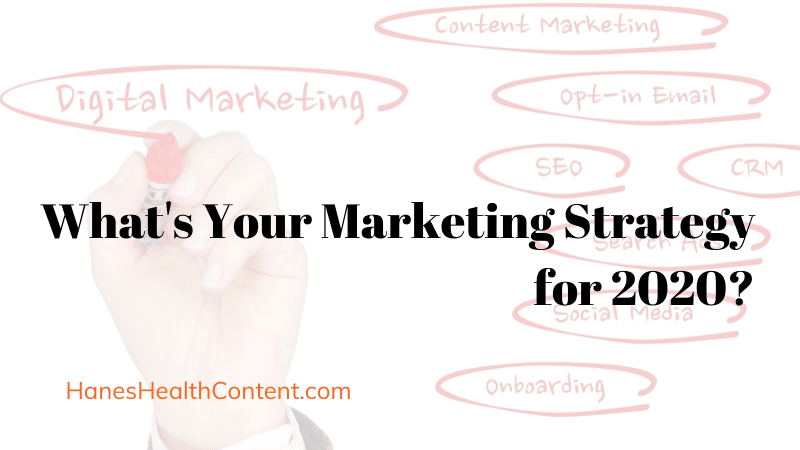If the idea of constructing a marketing strategy intimidates you, help has arrived.
Whether you’re a nurse entrepreneur starting up a new business, a seasoned plastic surgeon looking to expand your practice, or the marketing manager of a small healthcare system who wants to acquire more patients, you probably realize you could benefit from a marketing strategy to achieve your goals. A solid marketing plan maximizes your investment of time, energy, and dollars to return the best possible results.
However, the idea of creating a marketing strategy can sound overwhelming to a newly minted entrepreneur, a clinician in private practice, or an already over-burdened marketing manager in a health system.
So I’m bringing you a simple, three-point template you can use to get started. Sure, a comprehensive marketing strategy would be better than this rudimentary outline – but this little outline is better than no strategy at all. And maybe after you master the simple plan outlined here you’ll feel more confident about crafting a robust strategy in the future.
To get started on your 2020 healthcare marketing strategy, just include the elements below.
1. Target Audience
Who are you selling to? Here’s a hint: It’s not “all women” or “all seniors” or “all” anyone, frankly.
Before you can do any effective marketing at all, you need to know – as specifically as possible – who your target audience is. For a nurse businesswoman operating a geriatric care management business, your target client might be a middle-aged daughter who lives across the country from her frail mother and earns more than $90,000 per year. For the marketing director of a healthcare system, your target client might be a 30-something man with diabetes due to obesity and whose health insurance would cover bariatric surgery.
As you can see, these two audiences differ greatly and require different client-centric content approaches. The better you can define your target audience, the better you can tailor your marketing materials to reach and resonate with them.
2. Channels
Now that you’ve established with some precision who your target audience is, you should ask yourself how those folks prefer to receive marketing messages. A target audience of 20-year-old gamers may respond to in-game ads, whereas a middle-aged woman thinking about getting a facelift may be more likely to book an appointment with a plastic surgeon whose blog post really resonated with her. And that’s just two examples of marketing channel types.
Marketing channels can be digital (Google or Facebook ads, for example), content marketing (blogs, social media, and so on), traditional (billboards, direct mail postcards), word-of-mouth – any broad avenue for telling your brand story.
Always tailor your marketing channel selections to your target audience’s consumption habits. And don’t go crazy selecting channels, either. Especially if your budget is limited, you can focus on the top handful of channels most likely to reach your target audience.
3. Initiatives
Now that you’ve identified your target audience and chosen the best channels for reaching them, how do you actually get the word out? Well, you do it by determining which specific marketing initiatives or activities you will use for each channel.
For instance, if you chose content marketing as a great channel for your brand, then you need to decide precisely which content marketing activities you will undertake. Will you start publishing a blog? Publish videos on a YouTube channel? Leverage social media?
Within each broad channel lie an array of potential initiatives to undertake. Again, consider how your target audience consumes marketing messages and then choose activities that stand the best chance of reaching and resonating with them.
A full-blown marketing strategy contains far more detail than the three points I’ve outlined here, of course, but for the entrepreneur or marketing do-it-yourselfer, this bare-bones strategy outline can at least get you started – while you learn more about how to develop a comprehensive marketing plan that will help ensure your business success far into the future.

